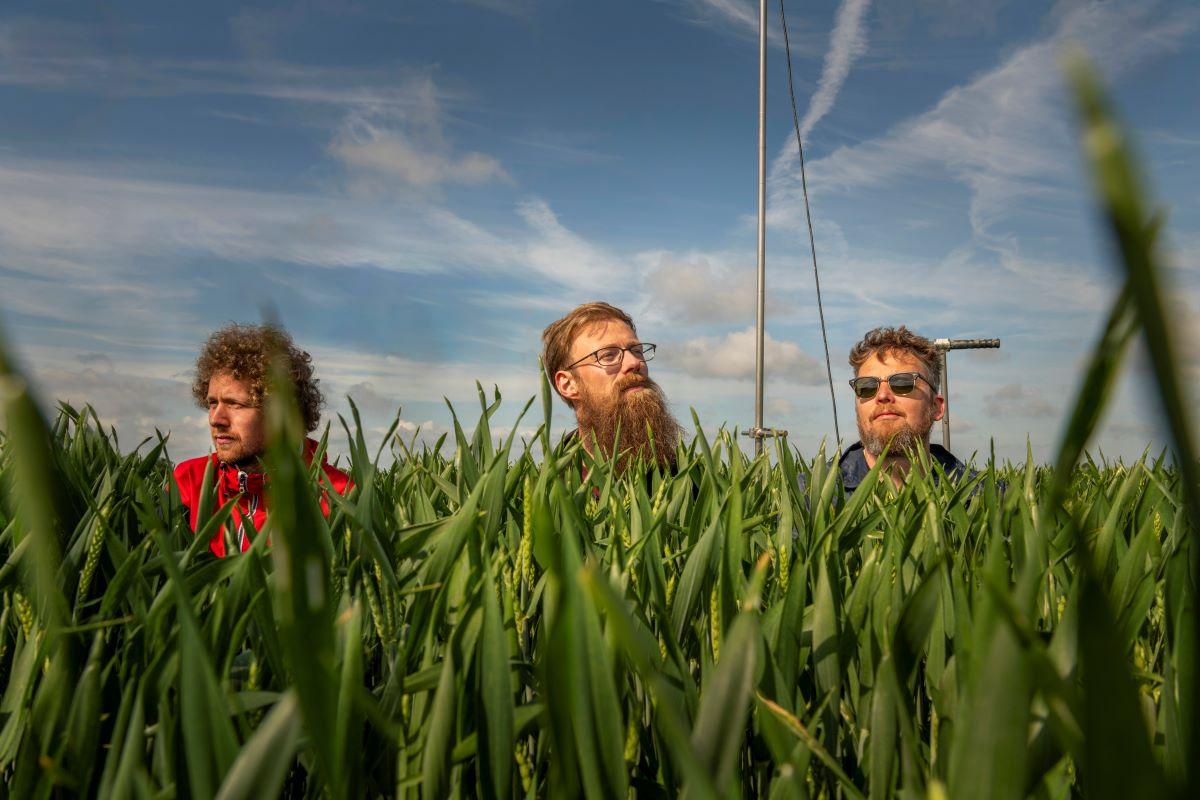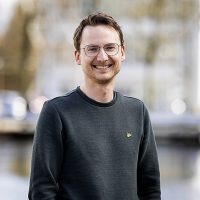Fresh water for fields in Zeeland
One of the challenges facing Zeeland is to combat the desiccation and salinisation of agricultural land. How Schouwen-Duiveland will also have sufficient freshwater in the future is being investigated in a Living Lab of which Deltares is part. Researchers from Deltares are working with farmers, governments and other knowledge institutions to test new, smart ways of drainage in the field.
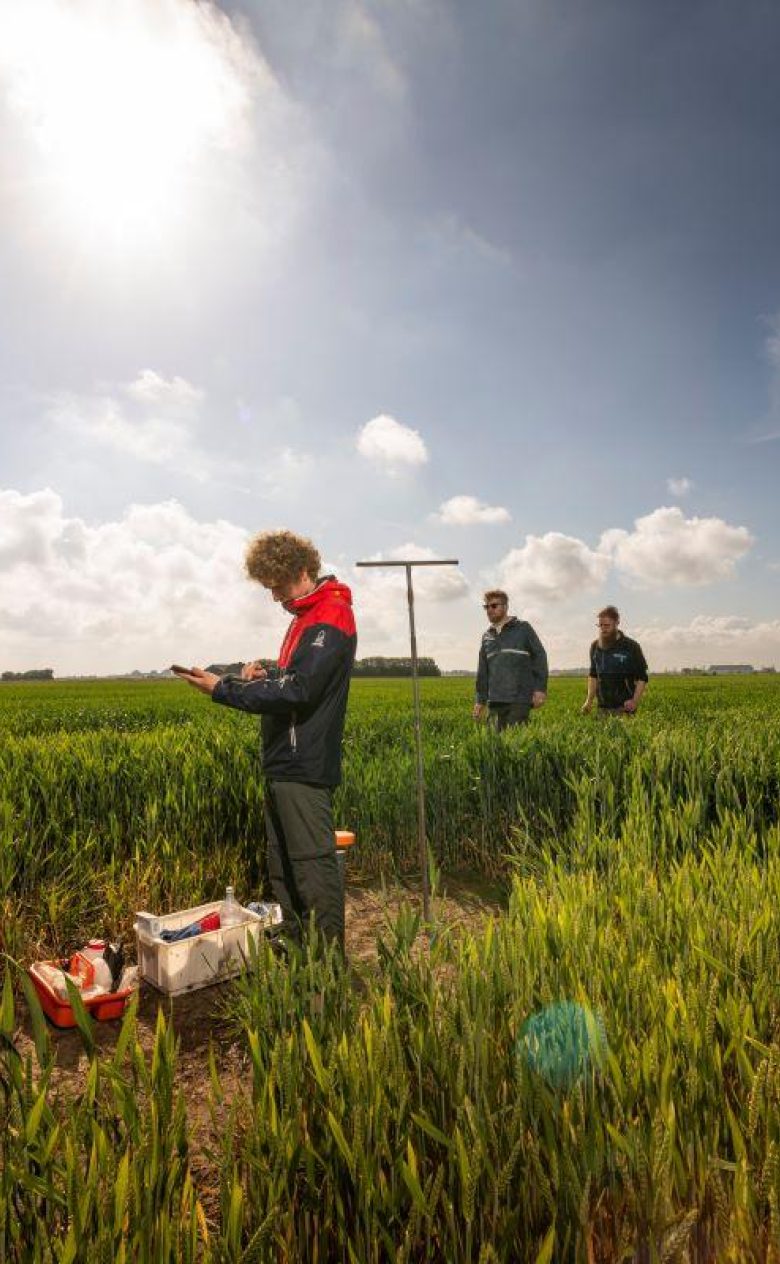
In a field full of winter wheat, Teun van Woerkom, Jude King and Edvard Ahlrichs, researchers at Deltares, search for the pole marking the site of their research. They are checking an innovative level-controlled drainage system in summer and winter on a farmer's land near the Zeeland village of Kerkwerve.
This system consists of two underground pipes, one to drain fresh (top) and one to drain salt (bottom) water. This system captures rainwater and keeps it separated from salty seepage water. Thus, it can be used for irrigation of fields.
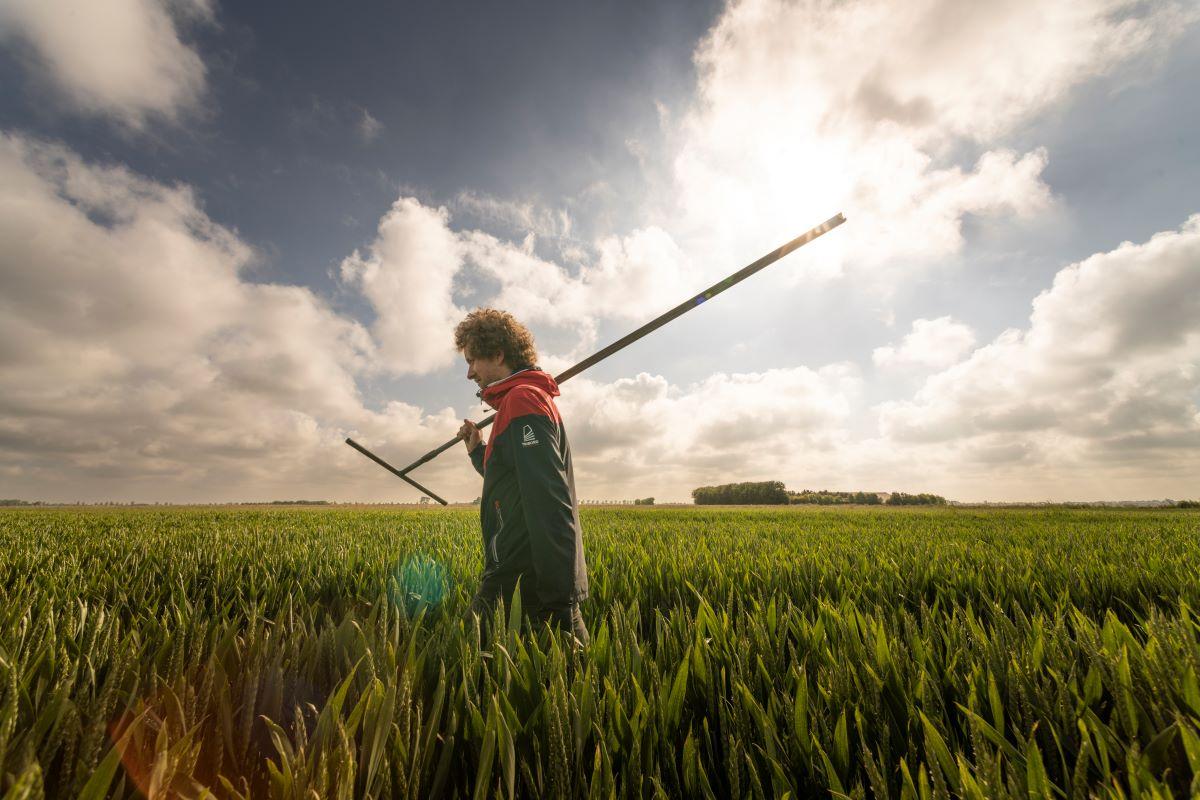
Imminent freshwater shortage
Agriculture on Schouwen-Duiveland depends on rainwater and available fresh ground and surface water for watering. The deep groundwater is salty and Schouwen-Duiveland is almost completely surrounded by salt water, so fresh water cannot be brought in to flush ditches as is done elsewhere.
Excess rainwater in winter is drained to the sea and not used to replenish the freshwater supply. The extremely dry summer of 2018 showed how vulnerable the island of Zeeland is to drought and climate change: fresh water was then trucked in to save crops.
Innovative storage and use
How the people of Zeeland can retain excess rainwater longer and use the available water more intelligently is the subject of research in the Living Lab Schouwen-Duiveland. Deltares is collaborating on several projects within this Living Lab. In the 'Demonstration project innovative drainage testing, monitoring and evaluation', Deltares is investigating the use of the adapted drainage systems at three locations.
Teun: "In other words, we are looking at whether this drainage system works as expected. How much water can be harvested, what about the fresh-salt distribution in the subsoil, how does the groundwater level behave, how does that relate to the salt in the soil moisture? We do this with monitoring equipment, but also via manual field measurements of water and soil."
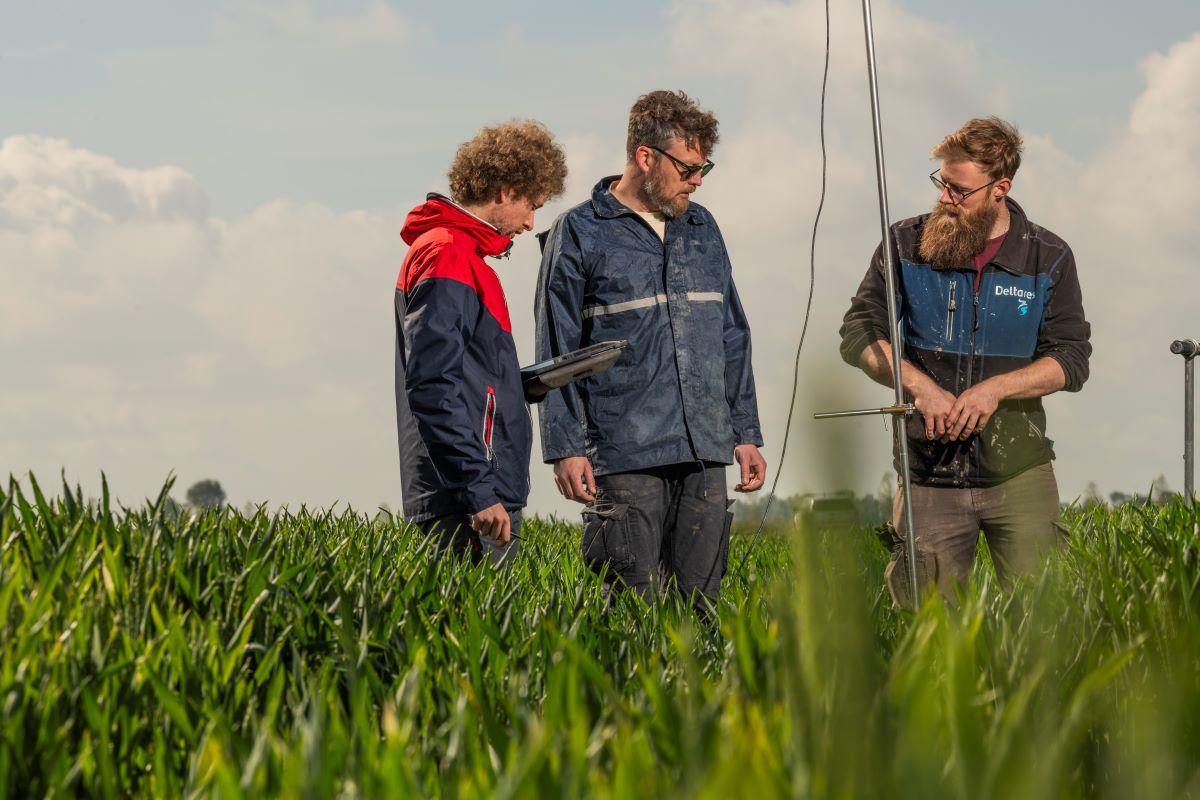
Working together for fresh water
The first results are hopeful for the island of Zeeland: innovative double drainage systems can help increase freshwater availability, including in places where it was previously thought that nothing would be possible. The monitoring provides practical information on operation and efficiency, on the basis of which guidelines for construction, management and maintenance of these systems can be developed.
In this pilot project, Deltares is working together with farms and other knowledge institutions and the municipality of Schouwen-Duiveland. The European Rural Development Programme supports the project financially, as do the province of Zeeland and municipality of Schouwen-Duiveland and the participating knowledge parties.
After all, reality is always more dynamic than you imagine from behind your computerTeun van Woerkom, expert water quality Deltares
Fieldwork
Teun and his colleagues drive to Schouwen-Duiveland two to three times a year to test the drainage systems. "With nice spring weather like today, that's no punishment," Teun laughs. Through rhizons, tubes as thin as a biro, and a prod, Teun, Jude and Edvard check how salty the groundwater is. Through the rhizons, they suck up soil moisture. Using an auger, they make holes for the probe, which goes three to four metres deep. Attached to the stick is a sensor that measures the conductivity of the groundwater: the better the conductivity, the saltier the water. All data are immediately entered into the tablet and other notable things are also noted, such as soil composition and temperature.
Teun: "This keeps you busy for an hour and a half per measurement, for two and a half days in a row. But fieldwork is great fun. After all, reality is always more dynamic than you imagine behind your computer. The fact that subsoil and groundwater can differ so much within a few centimetres makes you curious. Why is that so? That wonder prompts you to do more research."
